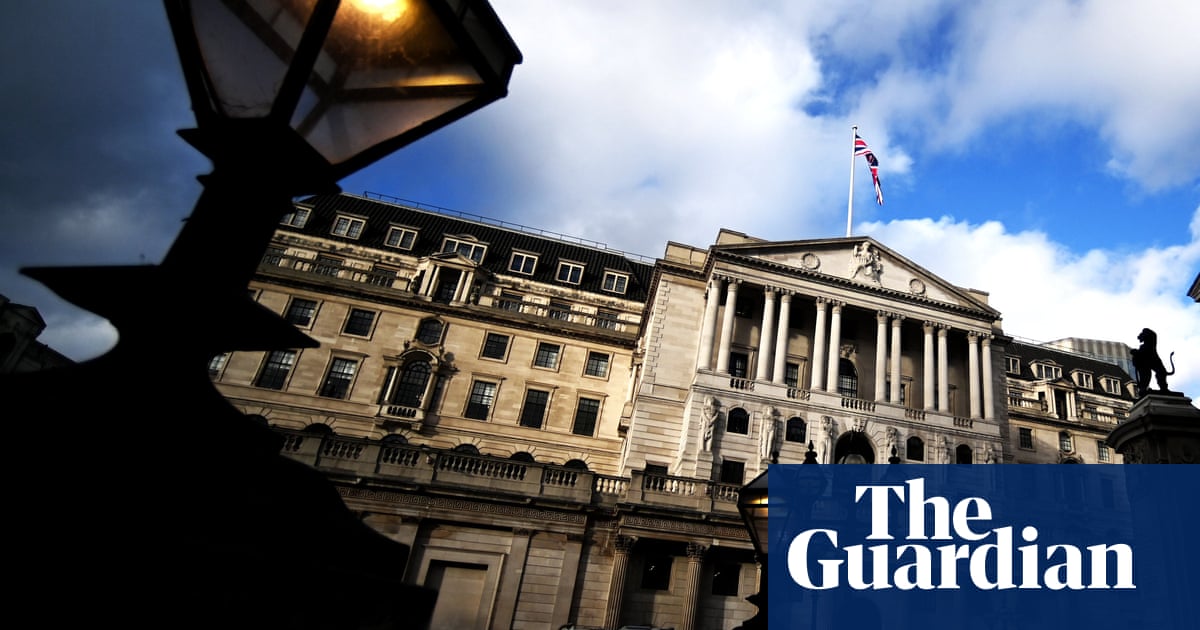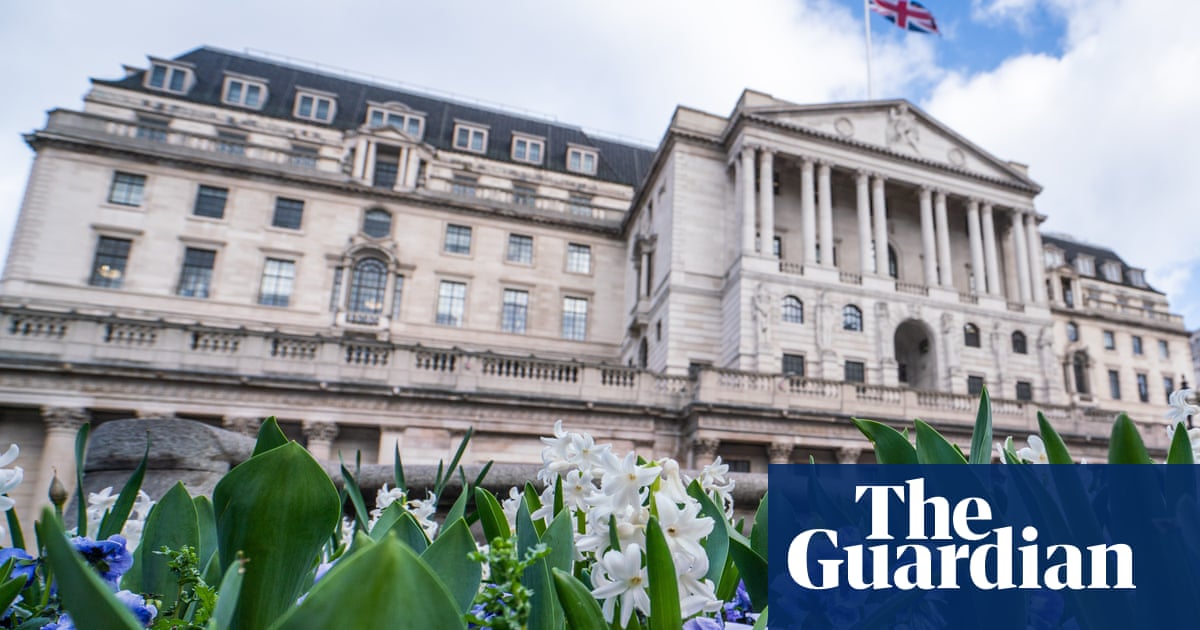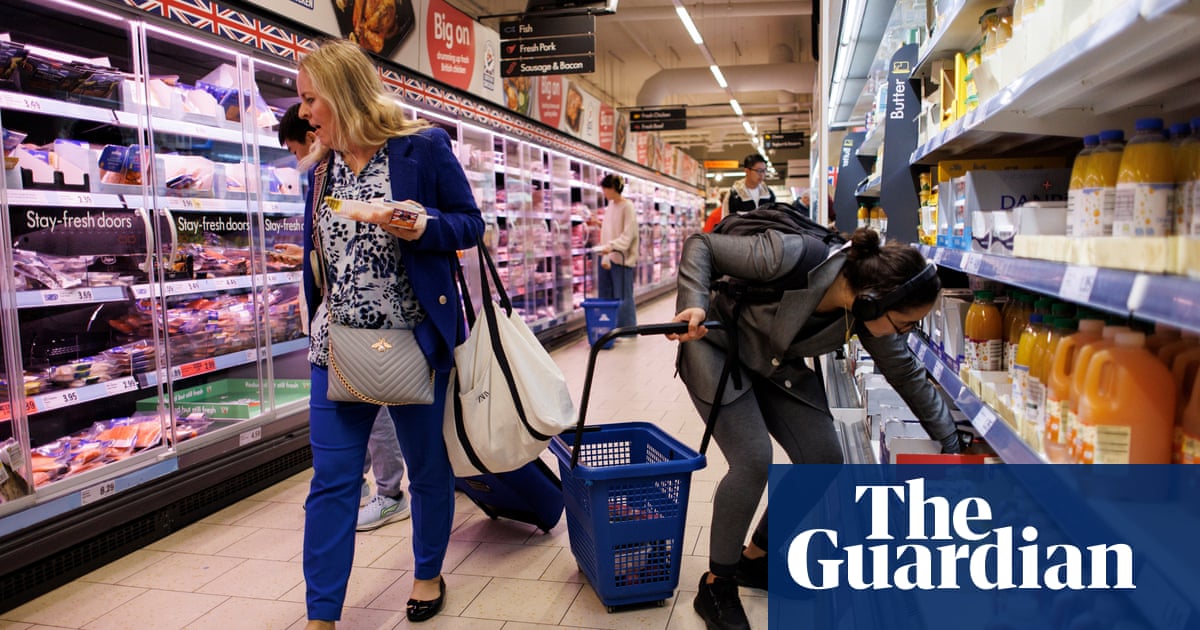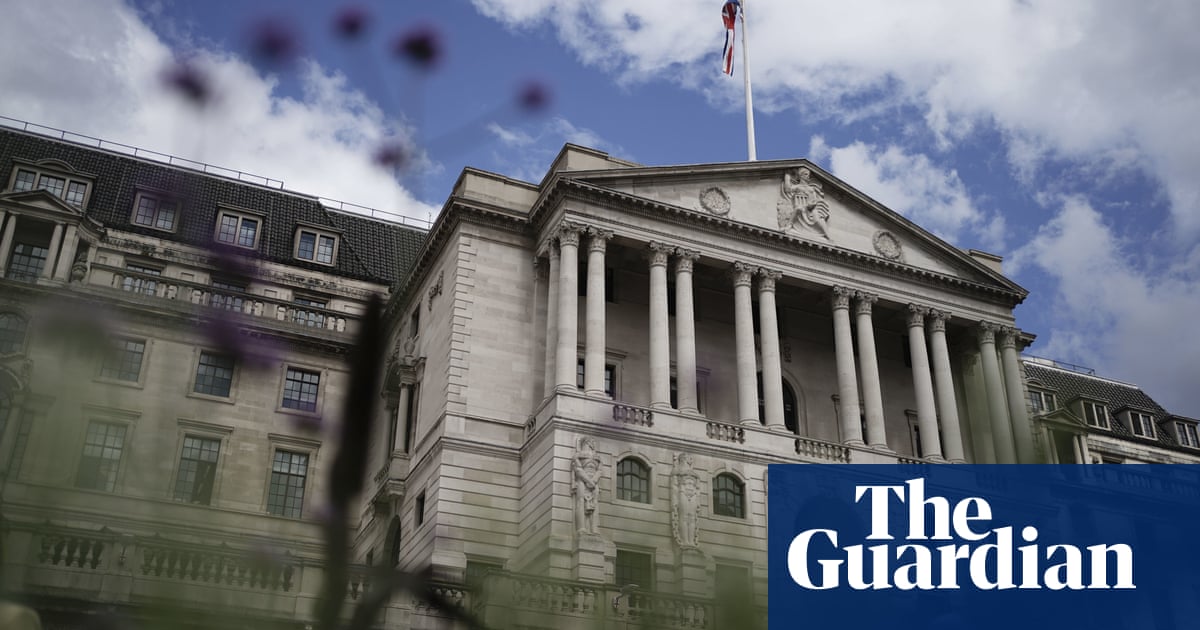
The Bank of England is poised to increase the cost of borrowing for households and businesses at its interest meeting today, as fears mount that the UK economy is about to enter a long recession.
Financial markets expect a 0.5 percentage point increase in the central bank’s base rate to 3.5% as the monetary policy committee seeks to combat inflation.
The consumer prices index (CPI) fell back from 11.1% in October to 10.7% last month, according to data released Wednesday, mainly from weaker increases in petrol, clothing and food, but remains well above the BoE’s 2% target.
Jeremy Hunt has indicated he will welcome a tough stance on rates by officials at Threadneedle Street after he said bringing down inflation was his main mission.
The chancellor said on Wednesday that inflation was “the No1 enemy that makes everyone poorer” and “getting inflation down so people’s wages go further is my top priority”.
However, anti poverty campaigners, trade unions and opposition MPs are likely to blame the Conservative administration for a triple whammy of rising interest rates, high inflation and a contracting economy that has triggered the biggest squeeze in living standards on record.
In the runup to today’s decision, Bank of England governor Andrew Bailey has steered financial markets away from predictions of a further sustained series of interest rate rises.
Bailey and chief economist Huw Pill have stressed the peak Bank of England borrowing rate would be less than the 5% forecast by markets last month. Since they made their comments, most forecasters estimate the peak will be between 4% and 4.5%.
Pill said there was a danger that a “self-sustaining” inflationary cycle could take hold whereby businesses continue to raise their prices to accommodate higher wage settlements for their workers long after pressure from soaring energy costs fades.
But a study of inflation in the US by Paul Donovan, chief economist at UBS Wealth Management, has shown a large element of price inflation has come from companies seeking to maintain profit margins.
Donovan has urged US Federal Reserve boss Jerome Powell to make clear consumers are paying a price for super-charged profits, and corporations are more to blame than workers for making the cost of living crisis worse.
Danny Blanchflower, a former BoE rate setter and professor of economics at the Ivy League Dartmouth College, has called on Bailey to show restraint or risk plunging the UK into a deeper recession.
Earlier this month MPC member Swati Dhingra said she was concerned the effect of eight interest rate hikes this year from a floor of 0.25% had yet to feed through to the economy.
In an interview with the Observer, she said: “You do see a much deeper and a longer recession with rates being much higher. That is what I think we should all be worried about … are we going to end up lengthening and deepening the recession if the tightening continues at the pace it is?”
Dhingra voted for a 0.5% rate rise at the MPC’s last meeting in November, when the majority of the nine-strong committee voted for a 0.75% increase.
Business surveys have shown most bosses expect interest rate rises to end by the middle of next year. A third of bosses in a survey said the latest batch of rates rises by the Fed, the European Central Bank (ECB) and the BoE would be the last.
The Fed raised its deposit rate on Wednesday by half a percentage point to a new target range of 4.25% to 4.5%, while the ECB is on course for a similar rise, though only from 1.5% to 2%.
Investors expect both to continue increasing borrowing costs next year, though at a slower pace.
Samuel Tombs, chief economist at the consultancy Pantheon Macroeconomics, said November’s month-to-month rise in the UK’s core CPI, which excludes volatile elements such as fuel and food, was the smallest for 11 months.
“This isn’t a fluke,” he said. “Recent falls in shipping costs and commodity prices point to a sharp fall in goods inflation.”
He said the cost of services, which depend more on salaries, would fall rapidly next year as wage increases fall back.
Gurpreet Gill, a macro strategist at Goldman Sachs Asset Management, said the lack of momentum in the economy “justified a slower approach to tightening”.
However, she expected “structural supply issues” stemming from an ageing population, low net migration, higher early retirement and an increase in long-term sickness after the pandemic to keep wage growth high.












